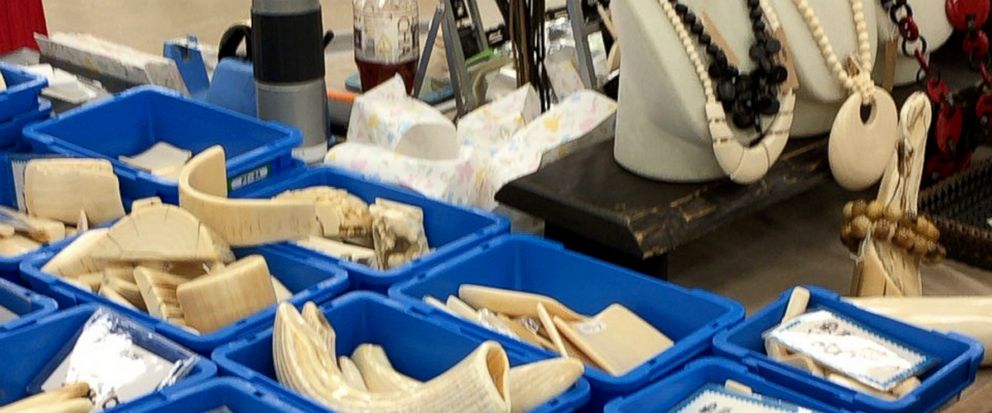Conservation group says Japan aiding in illegal ivory trade
Japan's lax controls over its domestic stock of ivory are encouraging illegal exports to other countries and undermining efforts to end trafficking in elephant tusks, a report said Wednesday.
The report, compiled with support by the World Wildlife Fund, said researchers found antique dealers are buying a large number of elephant tusks in Japan that are not registered as required by law.
It said hundreds of ivory items are sold each year by e-commerce sites, often to visitors from other Asian countries such as China.
The report said whole tusks were being advertised without needed proof of their provenance.
"Japan's domestic ivory market availability is targeted for procuring products from the antiques and tourist markets for illegal ivory exports, as well as through physical and online auctions," the report said.
It said some dealings were akin to criminal syndicates facilitating the smuggling of ivory into China, based on investigations into seizures of such items.
It cited data from the wildlife trade monitoring network TRAFFIC, which found that an average of 2,447 ivory items worth more than $400,000 were auctioned during a four-week period in May-June 2017 on a major e-commerce platform.
The report's authors urged the government to raise public awareness about controls on ivory dealings and to tighten controls at customs to prevent people from taking items such as ivory seals and figurines such as "netsuke" out of the country.
The Convention on International Trade in Endangered Species of Wild Fauna and Flora, or CITES, bans international trade in ivory in principle to protect endangered African elephants. It has called for closing domestic ivory markets in all member states, and many countries have complied.
China announced last year that it would shut down its ivory trade by the end of 2017. Hong Kong, the world's largest retail ivory market, plans to end local trading by 2021.
But Japan has resisted closing its own domestic market, contending that ivory products traded inside the country are not acquired through poaching or illegal deals. Instead, earlier this year the government approved a proposal to tighten registration requirements and inspections for its more than 8,000 ivory retailers and manufacturers.
The e-commerce giant Rakuten Inc. said it would ban sales of ivory items in its online marketplace. It also banned sales of products using parts of sea turtles.
Critics say the tusk registration system amounts to a form of ivory laundering because it can legalize tusks acquired illegally.
- Star
Add Interests Customize your news feed by choosing the topics that interest you.
To save your interests across all devices Log In or Sign Up »Source – abcnews.go.com






